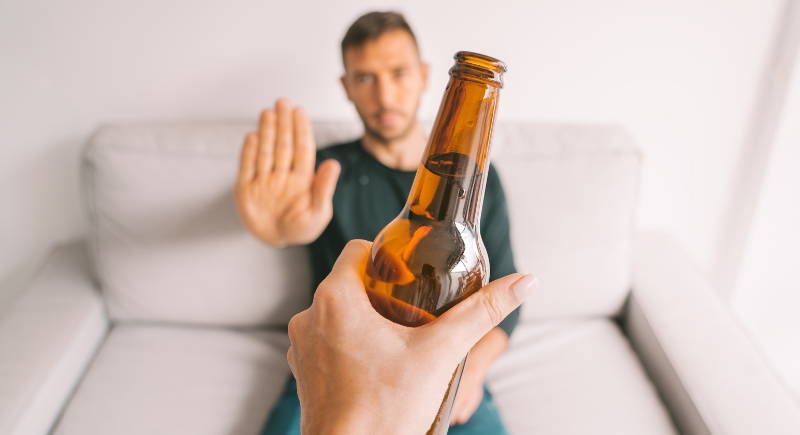The Risky Trend That Younger Generations Are Obsessed With Right Now
There’s a risky new trend taking over Gen Z and Millennials, but it’s not what you think. It’s not binge drinking or reckless nights out. It’s actually the total opposite. The so-called “risky” thing that younger generations are doing is not drinking at all. Skipping alcohol has become the cool thing to do, and it’s changing how people socialize and have fun.
Goodbye Shots, Hello Sobriety

Image via Getty Images/Daria Kulkova
Younger people are saying no to booze in record numbers. A study from Flinders University found Gen Z are nearly 20 times more likely to skip alcohol compared to Baby Boomers. In the U.S., Gallup reports that drinking among 18 to 34-year-olds has dropped to its lowest rate ever. The number of young adults who believe that even moderate drinking is bad for their health has also doubled since the early 2000s.
This doesn’t mean people are staying home. They’re still social, but their idea of fun looks different. They prefer hikes, picnics, and board game nights over bars, hangovers, and late-night rides. Millennials, like Indya Moss from Australia, are opting for outdoor walks and café catch-ups, while Gen Zers, such as Olivia from Philadelphia, are swapping happy hours for sports, book clubs, and brunches. It’s less about alcohol and more about connection, movement, and enjoying the moment.
The Business of Being Sober
All of this has sparked a major shift in spending habits. The global non- and low-alcohol market has grown to $13 billion, rising 29% between 2022 and 2023, and is projected to increase another 7% by 2027. Even big beverage companies have noticed. Heineken’s CFO said nonalcoholic drinks make up 4% of the company’s portfolio and could reach 7% soon.
Celebrities are getting in on it, too. Tom Holland, who quit drinking in 2022, launched an alcohol-free beer called Bero. Local entrepreneurs are following suit. In Minnesota, Alexandra Zauner opened Lucille’s, a nonalcoholic bottle shop and tasting room offering sober social events. In New York, Chaotic Good Café provides a space where people can play games, savor coffee, and unwind without alcohol, demonstrating that nightlife doesn’t have to revolve around booze.
A New Kind of Night Out

Image via Getty Images/Sol Stock
Gen Z is redefining where people gather. Instead of bars, many are meeting up at pottery studios, climbing gyms, or parks. Rock climbing venues in Ohio are packed on Friday nights, and coffeehouses are becoming popular hangouts. Research from AllTrails found that 38% of Gen Z and 34% of Millennials are drawn to wholesome outdoor activities like hiking and picnics. It’s about shared experiences, not shared drinks.
Health consciousness is also fueling this trend. Many young adults are influenced by online wellness movements, such as cold plunges or the 75 Hard challenge. Some just want to avoid wasting weekends feeling awful after a night of drinking. Others view it as a means to save money and maintain their mental clarity. A growing number are choosing to replace alcohol with creative outlets like art cafés or fitness-based activities that provide long-lasting satisfaction.
The Risk in Playing It Safe
Here’s the twist. For all its health benefits, this sober trend might be “risky” in a different way. It challenges traditions and disrupts nightlife, forcing industries to rethink what socializing looks like. Bars and concert venues are reporting lower alcohol sales, but new businesses built around wellness and connection are thriving. Cannabis companies are also adapting, with products like low-dose THC seltzers appealing to those seeking mild relaxation without heavy intoxication.
Gen Z’s shift away from alcohol isn’t about chasing some perfect lifestyle. It’s about the kind of presence that makes moments feel real. They’re more interested in clarity than escape, in experiences that feel genuine instead of forced. Choosing to skip the drink for a sunrise hike or a long conversation might not sound daring, but for a generation taught to value balance over burnout, that choice is what makes them stand out.